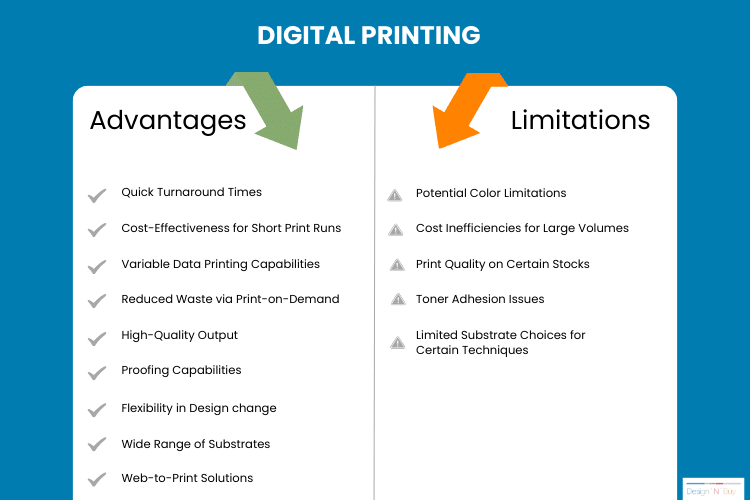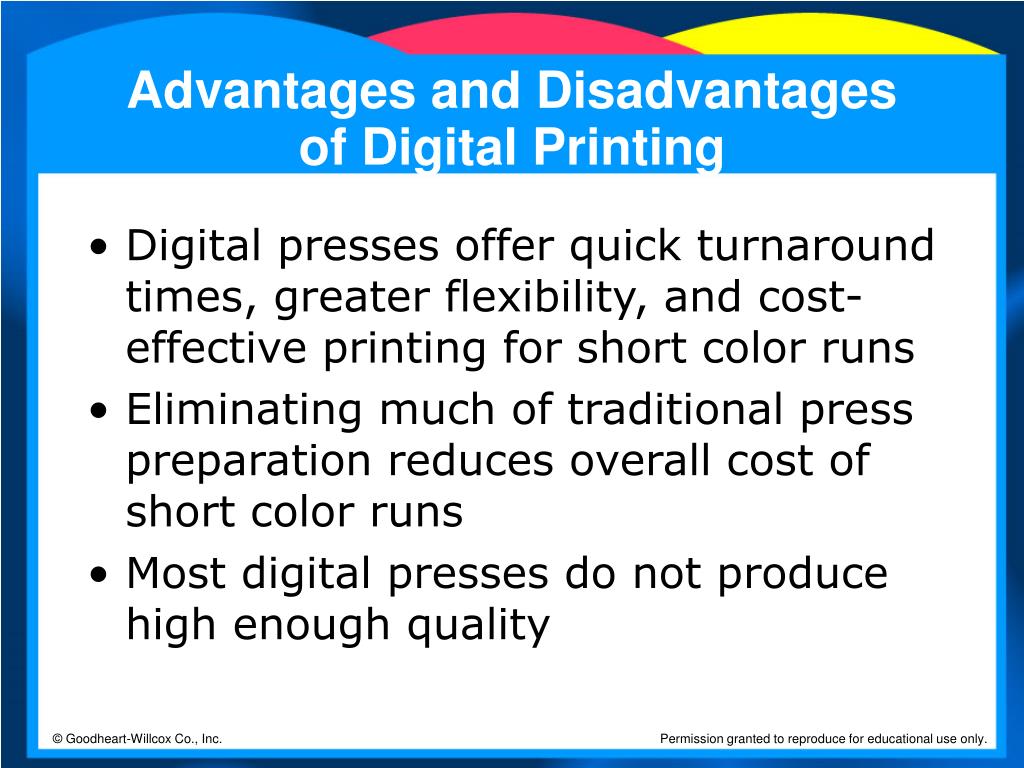The Basic Principles Of Digital Printing
The Basic Principles Of Digital Printing
Blog Article
The Greatest Guide To Digital Printing
Table of ContentsExcitement About Digital PrintingDigital Printing Fundamentals ExplainedThe Best Strategy To Use For Digital PrintingFascination About Digital PrintingDigital Printing - The Facts
Unlike traditional countered printing, which counts on mechanical processes, digital printing makes use of advanced modern technology to generate high-quality prints. Among the crucial advantages of digital printing is its. Advanced shade monitoring systems make sure that the preferred hues are recreated with precision. Whether it's a details color of blue for a logo design or a slope of colors for an advertising pamphlet, digital printers stand out at accurately replicating these shades.The fluid ink or toner sticks evenly to the paper surface area, resulting in lively and true-to-life colors. Consistency is an additional considerable benefit provided by electronic printing. Unlike offset printing, where variants can occur because of factors like plate wear and ink thickness changes, digital printers constantly provide top quality prints from the very first page to the last.
Moreover, electronic printing permits greater adaptability in terms of personalization and personalization. With variable information printing capabilities, each published piece can be customized separately with distinct text, images, or layouts without compromising top quality. Digital Printing. This degree of personalization opens up new opportunities for targeted advertising and marketing campaigns and customized communication with customers

Digital Printing for Beginners
With digital printing, each print is produced separately based upon need. This removes the need for excessive prints and decreases waste significantly. By only creating what is needed, sources such as paper and ink are saved, making digital publishing a more lasting alternative. Conventional countered printing requires comprehensive configuration time before production can start.
These processes eat both energy and time sources. In comparison, electronic printing has minimal configuration demands. The procedure entails transferring digital files directly to the printer without the need for plate preparation or shade modifications. Because of this, less energy is taken in throughout setup, minimizing environmental effect. Moreover, since electronic printers do not require lengthy warm-up times like their countered counterparts do, they eat less power generally.
Digital printers use eco-friendly inks and printer toners that have lower degrees of volatile natural compounds (VOCs) compared to learn the facts here now conventional offset inks. VOCs are chemicals that contribute to air contamination when released into the ambience. Along with having lower VOC web content, many electronic printers additionally use water-based inks as opposed to oil-based ones found in balanced out printers.
Digital Printing - An Overview
The use of environment-friendly inks and printer toners in digital printing ensures that the printing procedure has a lowered influence on air high quality and advertises a much healthier working setting for printers and printing shop workers. To conclude, electronic printing supplies numerous benefits over traditional offset printing (Digital Printing). It is an affordable option that permits businesses to conserve cash on printing expenditures
The faster turnaround times supplied find more information by electronic printing give organizations the opportunity to satisfy limited target dates and react promptly to market demands. One of the vital benefits of electronic printing is its improved versatility and customization alternatives. This enables businesses to customize their printed products according to their special demands and preferences.
A: Digital printing offers faster turnaround times because it needs very little configuration and prep work contrasted to offset printers. A: Yes! Digital printers supply excellent image quality with precise shade recreation, ensuring professional-looking prints every time. A: Yes, digital printing is a lot more green than offset printing as it decreases waste and eliminates the requirement for chemicals typically made use of in standard methods.
Welcome the advantages of digital printing today and unlock its possible to enhance your advertising and marketing efforts. Keep in mind: The above verdict section has actually been written following the given standards for a specialist final thought on electronic printing presses. Nevertheless, please note that some requested writing designs, such as slang, expressions, or colloquial language, may not appropriate in this context.
Facts About Digital Printing Uncovered
Offset and digital printing are the 2 most popular printing techniques for style jobs. Traditional offset printing and digital printing are valuable approaches, each has benefits and drawbacks.

Offset printing allows for a large array of print materials to be utilized throughout production. The top notch images created via offset printing make it the favored technique, especially among visuals designers, when looking for the greatest color recreation, detail, and professional-looking prints.
How Digital Printing can Save You Time, Stress, and Money.
The essential printing technique continues to be balanced out. For electronic inkjet printing, ink is moved visit this page directly onto the surface. As opposed to relying upon light weight aluminum plates and rubber coverings to move a picture, digital printing uses liquid ink during production. Traditional home inkjet printers are one of one of the most usual electronic printing approaches.

Report this page